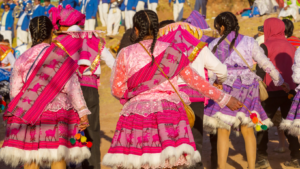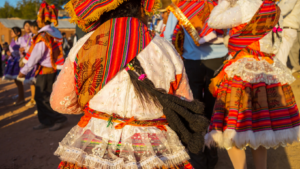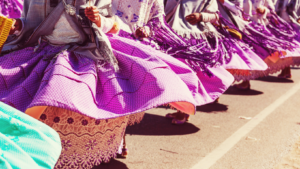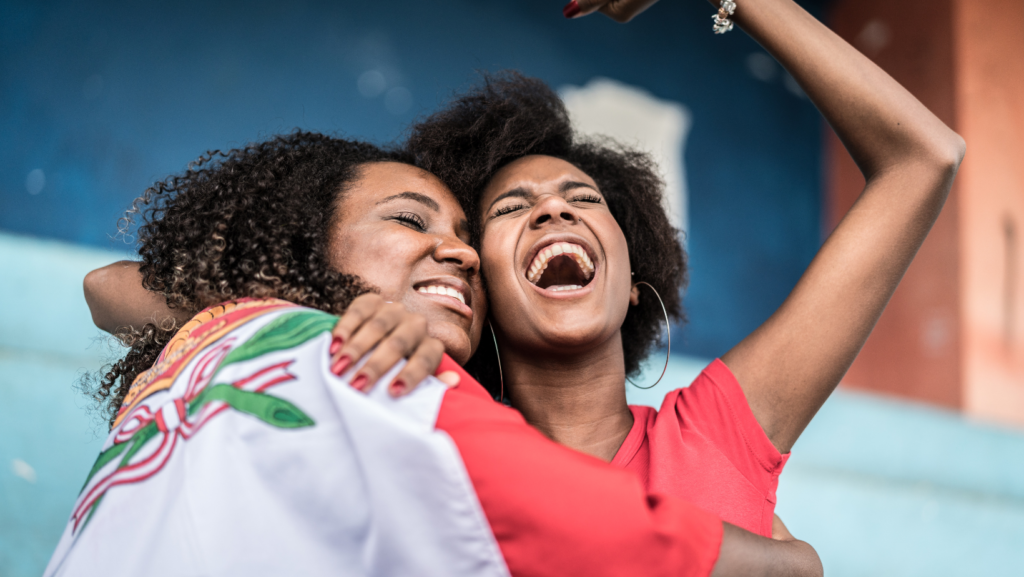Afro Peruvian Music, a vibrant tapestry of rhythm and culture, weaves together the rich history of Peru’s African descendants. This genre, born from the fusion of African, Andean, and Spanish influences, tells stories of resilience and celebration. Its infectious beats and soulful melodies capture the essence of a community that has long fought for recognition and cultural expression.
Rooted in the coastal regions of Peru, Afro Peruvian Music has become an essential part of the country’s cultural landscape. Instruments like the cajón, cajita, and quijada bring its distinctive sound to life, creating rhythms that invite listeners to dance and connect with the past. As more people discover this lively genre, its influence continues to spread beyond Peru’s borders, gaining appreciation worldwide.
With a growing global audience, Afro Peruvian Music stands as a testament to the enduring spirit and creativity of its people, ensuring their stories are heard and celebrated.
Afro Peruvian Music
 Afro Peruvian Music traces its origins to the transatlantic slave trade when enslaved Africans were brought to Peru during the colonial period. Influenced by African rhythms, Spanish melodies, and Andean harmonies, this genre emerged as a fusion of cultural elements. African rhythms provided a foundational element while Spanish melodies integrated European structures.
Afro Peruvian Music traces its origins to the transatlantic slave trade when enslaved Africans were brought to Peru during the colonial period. Influenced by African rhythms, Spanish melodies, and Andean harmonies, this genre emerged as a fusion of cultural elements. African rhythms provided a foundational element while Spanish melodies integrated European structures.
The coastal regions of Peru, particularly Lima and Chincha, became melting pots where these diverse musical influences converged. In these areas, African-descendant communities retained cultural traditions through music, dance, and oral expression. Instruments like the cajón and quijada evolved as adaptations of traditional African percussion instruments, using locally available materials.
Prominent Afro Peruvian Artists
 Afro Peruvian Music showcases a vibrant tapestry of cultural heritage, with artists who have both shaped and enriched the genre across generations. They paved the way for emerging talents while preserving the essence of their community.
Afro Peruvian Music showcases a vibrant tapestry of cultural heritage, with artists who have both shaped and enriched the genre across generations. They paved the way for emerging talents while preserving the essence of their community.
Renowned figures like Susana Baca, Nicomedes Santa Cruz, and Victoria Santa Cruz have had profound impacts on the Afro Peruvian Music scene. Susana Baca’s smooth vocals and innovative approaches have earned international acclaim, bringing Afro-Peruvian rhythms to the global stage. Nicomedes Santa Cruz’s work went beyond music; he was a celebrated poet and folklorist who tirelessly promoted Afro-Peruvian culture. Victoria Santa Cruz, a cultural icon, contributed significantly through her choreography and theatrical performances, emphasizing African roots and identity.
Contemporary Musicians
Today’s Afro Peruvian Musicians, including Eva Ayllón and Nova Lima, continue to evolve the genre while respecting its roots. Eva Ayllón’s soulful renditions and dynamic stage presence have made her a leading figure in preserving traditional songs. Nova Lima, an ensemble group, merges electronic sounds with traditional Afro-Peruvian instruments, creating innovative tracks that appeal to diverse audiences worldwide. Through their music, these artists expand the reach and influence of Afro-Peruvian culture, ensuring its legacy endures.
Cultural Impact And Significance
Afro Peruvian Music deeply influences both cultural identity and social dynamics. It embodies the spirit and resilience of its people while transcending national boundaries.
Social And Political Influence
 Afro Peruvian Music plays a crucial role in social movements and political discourse. It serves as a voice for marginalized communities, highlighting issues like racial inequality and social injustice. The music conveys powerful narratives, often drawing from historical experiences. Through events and festivals, it strengthens community ties, fostering unity and empowerment. Artists frequently use their platforms to engage in activism, addressing cultural preservation and human rights.
Afro Peruvian Music plays a crucial role in social movements and political discourse. It serves as a voice for marginalized communities, highlighting issues like racial inequality and social injustice. The music conveys powerful narratives, often drawing from historical experiences. Through events and festivals, it strengthens community ties, fostering unity and empowerment. Artists frequently use their platforms to engage in activism, addressing cultural preservation and human rights.
Global Reach And Recognition
This genre has achieved significant global recognition, showcasing its rich heritage on international stages. Artists like Susana Baca and Eva Ayllón have introduced global audiences to its dynamic rhythms and soulful performances. The international interest has led to collaborations with diverse musicians and inclusion in world music festivals. As it gains popularity, Afro Peruvian Music promotes cultural exchange and understanding, enhancing its influence worldwide. This global exposure contributes to the preservation and continued evolution of the genre, ensuring its relevance and vitality.

